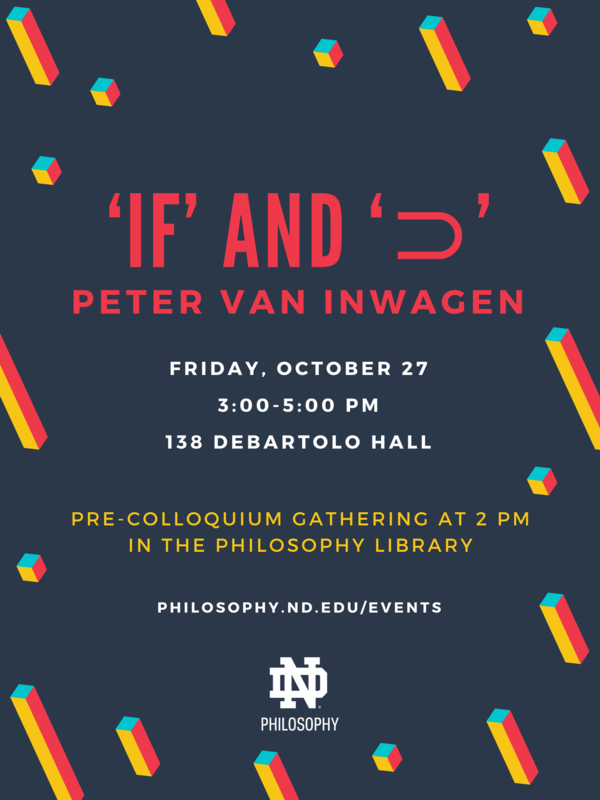Colloquium Talk: Peter van Inwagen
‘If’ and ‘⊃’
Friday, October 27th. 3-5 pm

Abstract:
Here are two theses about the relation between ‘if-then’ and ‘⊃’. I will call them,
respectively—and perhaps tendentiously—, the Wrong Thesis and the Right Thesis.
• The meaning of ‘⊃’—like the meaning of any truth-functional connective—is given by its
truth-table; in this case
p q p ⊃ q
T T T
T F F
F T T
F F T
Having provided a truth-table, and hence a meaning, for ‘⊃’, one may then go on to compare the
semantic and pragmatic properties of “material conditionals” (sentences formed by flanking ‘⊃’ with
declarative sentences) with properties of the corresponding “indicative conditionals” of the
vernacular—to compare the properties of, e.g., ‘Oswald did not shoot Kennedy ⊃ someone other than
Oswald shot Kennedy’ with the properties of ‘If Oswald did not shoot Kennedy, then someone other
than Oswald shot Kennedy’. What to say about the relation between material conditionals and the
corresponding indicative conditionals is a substantive question in the philosophy of language.
• A material conditional by definition has the same properties as its indicative-conditional
counterpart. That is to say, the right way to introduce the symbol ‘⊃’ (or ‘⊃’ or whatever) into
our logical discourse is by means of a definition like the following:
p ⊃ q =df If p, then q.
The truth-table for ‘⊃’ is therefore the truth-table for ‘if-then’—if ‘if-then’ is indeed a
truth-functional connective. ‘If-then’ is a truth-functional connective, and its truth-table is
p q If p, then q
T T T
T F F
F T T
F F T
In this paper, I reject the Wrong Thesis and defend the Right Thesis. I then present what I
consider a proof that an indicative conditional is false if its antecedent is true and its
consequent false—and true otherwise. I go on to consider a wide range of sentences and arguments
that various philosophers have supposed raise insuperable or at least serious
difficulties for this position.